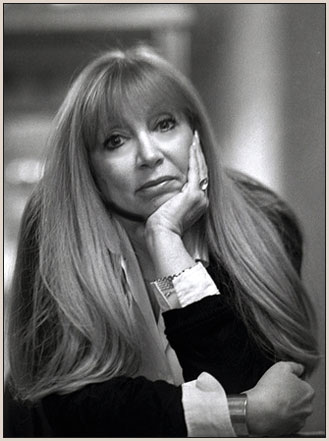Originally posted on Xlibris Author's Lounge
Six Questions for M.J. Rose
1. Your first novel, Lip Service, was an online publishing success. What was your experience with potential publishers of the novel prior to that, and what prompted you to take matters into your own hands?
When my agent tried to sell Lip Service in 1996, we got two offers on it from the New York publishing community but ultimately the marketing departments of those two companies nixed the deals because the novel didn’t fit into a genre or niche. My agent suggested I write a new novel since editors liked my work so much, so I started to do some research which led me to the Internet.Months online passed and I started to realize that the Net would be a great place to sell original fiction via electronic downloads. (This was in 1997 and no one had heard of ebooks yet.)It took me till the late summer of 1998, but I worked out all the kinks and came up with a marketing plan and started selling Lip Service from my own website. Only a few months later, the book was discovered by Erika Tsang, an editor from the Doubleday Book Club and The Literary Guild. It was the first time they had discovered a book online or bought a self-published novel. A few weeks after that, Pocket Books bought the print rights. Lip Service is now available or will be soon in England, Australia, The Netherlands, Germany, and France. Pocket Books releasing Lip Service as an ebook is really bringing it full circle.
2. Why did you choose to use the M. J. Rose pseudonym rather than your own name?
I knew I was putting a very racy prologue up on my website and wanted to avoid getting any strange phone calls at 2am, so a pseudonym was in order. My mom — who had been my main source of encoragement all my life and always knew I'd one day be published — had just died. It was in honor of her that I took her name and added my own first initial: M. I wanted the original J. Rose to be part of my book in a meaningful way.
3. How did you get over the self-publishing stigma that so many would-be self-publishers seem to suffer?
I didn't. I suffered it every day for eight months. Got laughed at and ignored by many. It bothered me but only to a point because I started getting such incredible reviews from readers and so much fan mail. Within a few months the derision began to matter less and less.
4. Lip Service was picked up by Pocket Books, a traditional publisher, and I understand you're working on another book that will be published with them. Do you feel more secure now that your work has been recognized by a larger publishing house? What if Pocket had never come along but your work was still selling just fine? I have to admit that I do feel more secure as an author now. Even more so because Pocket bought the second novel and then the first. I also feel validated because Lip Service is starting to get some attention for its literary merits. It was recently chosen to be part of Esquire's summer reading list. And Susie Bright recently chose Lip Service for her anthology, Best American Erotica 2001 — that was enourmous validation.I don't have any idea how I'd feel if a print publisher hadn't picked up my novel — and its been too wonderful a ride for the last eighteen months to even think about it.
5. What are the some of the best techniques you've utilized to self-market your work?
Generating word of mouth amoung readers. Each book is unique and the way to generate that buzz is unique for each title — but people telling other people is the only way to market fiction.
6. Do you have any predictions for the future of self-publishing in terms of industry attitudes changing?
Industry attitudes already have changed. Time Warner's new publishing arm, iPublish.com, which opens up submission to unagented authors is proof of that. I recently interviewed the editor of iPublish for an article I recently wrote for Wired News. Her name is Claire Zion and she told me that she believes 20% of the books that are not published probably have potential but marketing demands that if a book can't sell over 25,000 copies, editors and agents have to pass on it. Now with ebooks, those books that have smaller audiences can be epublished because printing costs are eliminated and so are the issues of returns and warehousing.
 M. J. Rose has been called the poster girl of e-publishing by Time and has been profiled in Forbes, Business 2.0, Working Woman Magazine, Newsweek and New York Magazine.
M. J. Rose has been called the poster girl of e-publishing by Time and has been profiled in Forbes, Business 2.0, Working Woman Magazine, Newsweek and New York Magazine.
In March 1999, her novel Lip Service was the first e-book discovered online, published by Pocket Books in August, 1999. It was available as an ebook on May 16 and will be published by Pocket this July as a trade paperback. Her new novella, Private Places, available in five installments, is up now at Mightywords.com.
Her next novel, In Fidelity, will be published by Pocket Books in March 2001. Her non-fiction book, How to Publish and Promote Online, written with Angela Adair-Hoy, will be published by St. Martin's Press in January 2001.
Rose also covers the ebook industry for Wired News. She is currently working on her third full-length novel and is on the advisory board of Writer's Digest.
This article posted at http://www.xlibris.com.au/authors-lounge-q-and-a-rose.aspx
Call 1-888-795-4274 or email publishtoday@xlibris.com for your free consultation. Get Started today by requesting your Free Editing Guide. |



0 comments:
Post a Comment